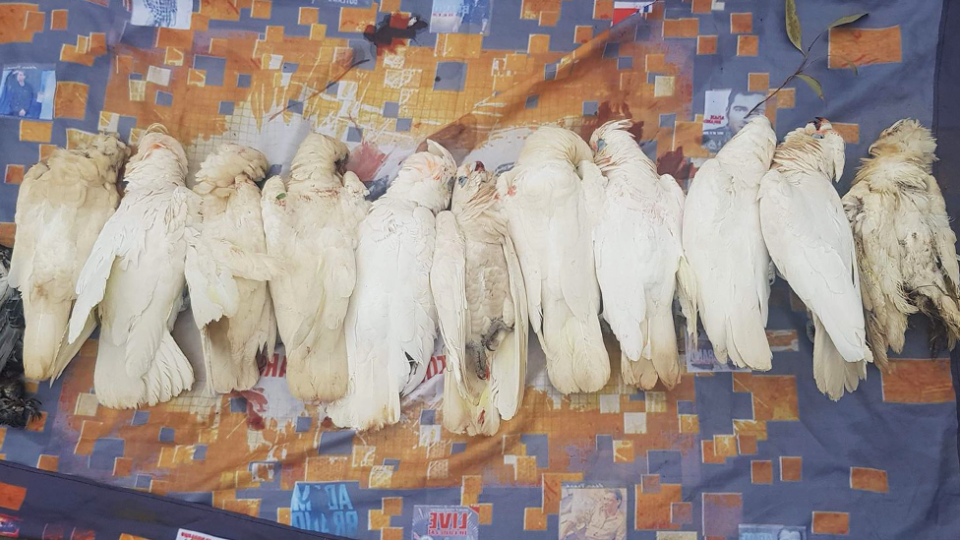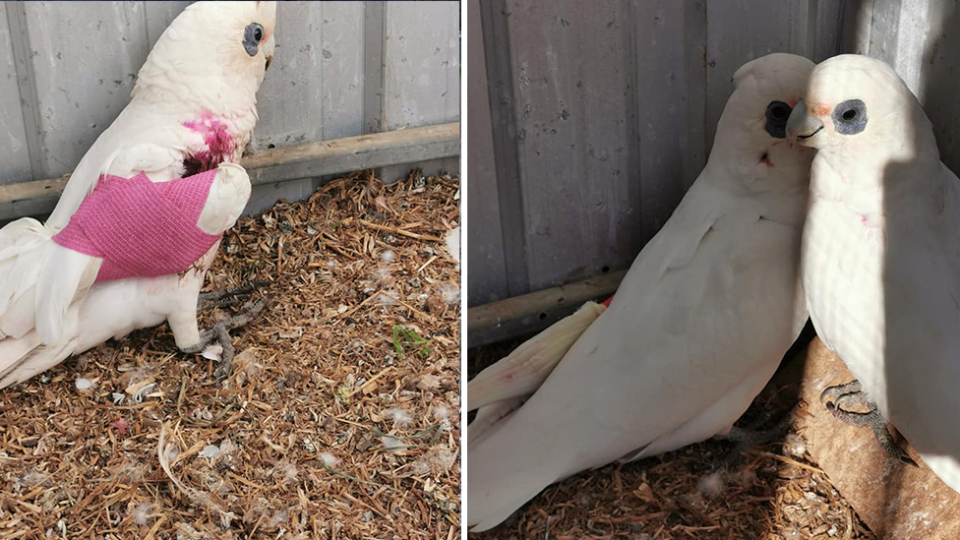'Mentally and physically draining': Race to save survivors after mass bird deaths
WARNING - DISTRESSING CONTENT: Investigations are underway after two dozen dead and dying birds were found on the outskirts of a regional Australian town.
RSPCA South Australia confirmed a cruelty report was received on Tuesday in relation to corellas and galahs at Angle Vale, 34km north of Adelaide.
Confronting images of injured birds huddling together and a blood-soaked corella were shared on social media by wildlife carers who attended the scene.

Caspers Bird Rescue first received a call from a member of public on Saturday and volunteers continued to take in birds through to Tuesday evening.
The group’s founder Sarah King told Yahoo News Australia that many of the birds were emaciated and lethargic, while others were bleeding from open wounds.
Seven birds are undergoing treatment with volunteer carers, and six were deemed unable to recover and were euthanised.
Eleven others were found dead.

Populations of corellas and galahs are believed to be secure across mainland Australia, although authoritative surveys since last summer’s bushfires are yet to be completed.
Both species usually pair for life and can live beyond 40 years of age.
They are two of a list of 10 birds legislated as “unprotected” in South Australia, meaning they can be shot without a permit, however government guidelines stipulate “death must be confirmed”.
The code requires that after shooting, dead birds should be be gathered immediately and stored in a container out of sight.
The department of environment said they are unaware of any poisons registered for the destruction of native birds in South Australia.
Carer releasing birds fears more carnage
Ms King said she can empathise with landowners feeling frustrated by wildlife damaging crops, but the task of cleaning up the bodies of dead birds each year has left her feeling demoralised.
She is now reconsidering the ethics of releasing rehabilitated bird species which do not have protection.
“It’s draining, it’s mentally and physically draining,” she said.
“With the work we’re doing to save these guys, I think we’d just be sending them out to have this happen again.
“If they’ve got remnants of poison and damaged livers, they’re just not going to make it if they’re released.

'Shredded': Call for rethink of barbed wire fencing after horrendous deaths
'Can't sleep at night': Controversial 'deadly' fence dividing opinion on 'wild dogs'
'Sick in the guts': Woman horrified by what she found with dead kangaroos
Ms King said as well as unprotected species, her group is seeing increased numbers of predatory birds which are showing the effects of secondary poisoning.
“Once the birds start showing their symptoms, it’s often too late,” she said.
“It’s in their bloodstreams and there is nothing we can do.”
The author, Michael Dahlstrom, is a registered native bird carer in NSW.
Do you have a story tip? Email: newsroomau@yahoonews.com.
You can also follow us on Facebook, Instagram and Twitter and download the Yahoo News app from the App Store or Google Play.




